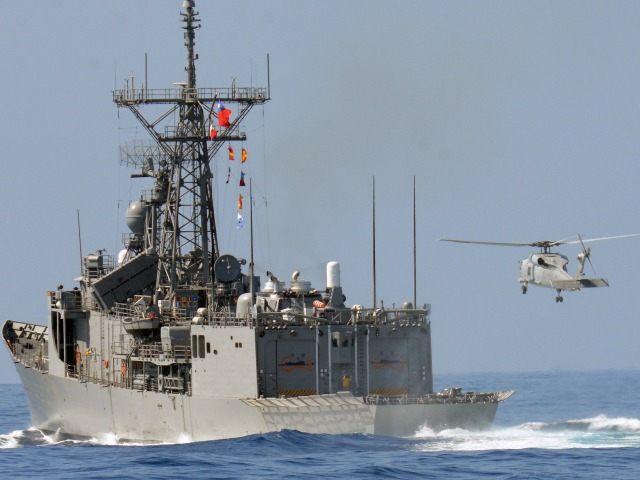China summoned U.S. envoy Kaye Lee in Beijing on Thursday to complain about the sale of $1.83 billion in arms to Taiwan, and threatened to impose sanctions on all companies involved, accusing the United States of breaking international law and compromising China’s sovereignty.
The harangue from Chinese Vice Foreign Minister Zheng Zeguang came just hours after the Obama Administration formally announced the deal with Taiwan.
“Taiwan is an inalienable part of China’s territory. China strongly opposes the U.S. arms sale to Taiwan,” said Zheng, as quoted by China’s state-run Xinhua news service. “To safeguard our national interests, China has decided to take necessary measures, including imposing sanctions against the companies involved in the arms sale. No one can shake the firm will of the Chinese government and people to defend their national sovereignty and territorial integrity, and to oppose foreign interference.”
Xinhua reported a Chinese Foreign Ministry spokesman urged the U.S. to halt the “highly sensitive and dangerous” arms sale to Taiwan, and “do something more conducive for China-U.S. relations and the peaceful development of cross-Strait relations,” earlier this week.
Reuters describes the sale as including “two Perry-class guided-missile frigates; $57 million of Javelin anti-tank missiles made by Raytheon and Lockheed Martin; $268 million of TOW 2B anti-tank missiles and $217 million of Stinger surface-to-air missiles made by Raytheon, and $375 million of AAV-7 Amphibious Assault Vehicles,” plus support and maintenance hardware. It was approved by Congress a year ago, but delayed out of what was widely seen as concern over upsetting China.
It constitutes the first major arms sale to Taiwan in over four years; the previous sale angered China enough to trigger “a high-level diplomatic protest and suspension of military exchanges,” according to NBC News, which notes the general atmosphere between the U.S. and China is currently even more tense than it was in 2011, due to the ongoing dispute over Chinese military construction in the South China Sea.
However, NBC quotes Taiwan’s Ministry of Foreign Affairs saying the sale would increase regional stability and boost Taiwan’s “confidence as we engage in dialogue and improve relations across the Taiwan Strait.”
Taiwanese Deputy Defense Minister Chong-pin Lin said that while Beijing was talking tough, he thought it unlikely they would “break relations or do something drastic.”
“Our longstanding policy on arms sales to Taiwan has been consistent across six different U.S. administrations,” said National Security Council spokesman Myles Caggins. “We remain committed to our one-China policy.” This last is a reference to the rather delicate diplomatic position of the United States on Taiwan, which is not considered a separate state from mainland China, but is still equipped for defense against it.
If China is serious about hitting Taiwan’s American arms vendors with sanctions, Reuters notes the primary targets would be Raytheon and Lockheed Martin. While U.S. arms sales to China have been banned since the Tiananmen Square crackdown in 1989, these companies have other, non-military interests in China that could be threatened. For example, Lockheed Martin has an arrangement to build a 10-megawatt “green” offshore power plant, using ocean thermal energy conversion technology, for a luxury resort in southern China.
The New York Times speculates that the sale was carefully timed to occur before the Taiwanese elections, during which the presidency is expected to pass to the Democratic Progressive Party, which “favors a more distant relationship with the mainland and the assertion of Taiwan’s own identity.” Former National Security Council official Evan S. Medeiros said completing the sale after the DPP came into power would have been seen as “particularly provocative.”

COMMENTS
Please let us know if you're having issues with commenting.